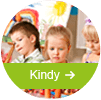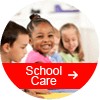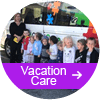Does Early Learning Program for Toddlers Offer a ‘Head Start’?
One of the most common questions we encounter from parents relates to the benefits of an early learning program for toddlers. Essentially, this equates to wondering if such a program will allow their child to advance more rapidly academically.
In what follows, we’ll answer based on our extensive experience and be objective in relaying current experimental and statistical evidence.
What is an Early Learning Program for Toddlers?
Contrary to some misleading folklore, this is certainly NOT about intensive lessons, numerous tests, and progress demands being applied to toddlers! In its true sense, this approach focuses on children having fun and playing, but with elements of their play structured to allow them to discover things about the world they live in.
Depending upon what age one includes in the definition of ‘toddlers’, this can encompass a variety of developmental milestones. For younger toddlers, this might include activities designed to help develop their motor skills, such as crawling, walking, and manipulating objects. These activities are often integrated into playful scenarios where the child may not even realize they are learning new physical skills.
As children grow slightly older, the focus can shift to enhancing their vocabulary and social skills. This can involve interactive games that introduce new words and concepts, as well as opportunities for children to interact with their peers in a supervised setting. These interactions help children learn how to communicate more effectively and understand social cues, which are foundational skills for later life.
Additionally, the beginnings of reading, writing, and creative skills are also nurtured during this stage. Activities might include storytelling sessions, drawing and coloring exercises, and simple puzzles that challenge a child’s cognitive abilities. These activities are designed to be engaging and enjoyable, ensuring that the learning process is both effective and enjoyable for the child.
This is a specialized field that requires experienced practitioners who understand the unique needs and developmental stages of toddlers (program for toddlers). These professionals utilize supporting processes and methodologies that are evidence-based and tailored to maximize each child’s potential. The goal is not just to teach specific skills, but to foster a love of learning and discovery that will benefit the child throughout their life.
In essence, this approach is about creating a balanced environment where structured play leads to meaningful learning experiences. It respects the natural curiosity and intrinsic motivation of children, leveraging these attributes to facilitate holistic development in a supportive and nurturing manner(program for toddlers).
What effect does it have on a child’s academic progress?
This has been the subject of extensive analysis and debate for some decades. While the consensus is that an early learning program for toddlers is highly beneficial, just how much so and over what age ranges has been not entirely clear.
Research today suggests that such programs DO have an immediate effect by helping children progress more easily than those who have not been exposed to such learning approaches. These benefits appear to be manifest from the toddler age through into their early formal schooling years, typically plateauing around the age of 6-8.
In that age range, the initial academic boost children receive from such toddler programs begins to be less visible when viewed against their peer group who did not participate in an early learning program for toddlers.
Does this mean a child only benefits for a few years?
No!
The obvious academic benefits in areas such as reading and basic arithmetic are only some of those generated by these programs.
What stays with children from these programs are benefits that are less obvious but still measurable and desirable. They include fewer disciplinary issues, better attendance records, a higher level of interest and self-motivation to learn and a tendency to progress into higher education more frequently.
Interestingly, many of these benefits stay with children well through higher education and into their early adult lives.
All children benefit
In our experience, virtually all children benefit from these programs. The program does not require any special predispositions or abilities from a child.
Parental contributions in the home can help a child to progress faster and to develop some of the skills and attitudes mentioned above. This is something we share with parents in advance and all the family can find it great fun!
Discovering more about early learning programs for toddlers
Why not call us and make an appointment to visit and discuss more of our programs and their benefits? We’d love to share more details with you and show how these programs might benefit your child.













